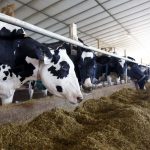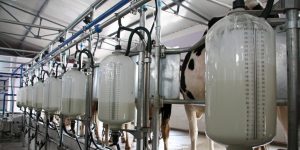
The DNU announced on Wednesday night by Javier Milei completely changes the relationships between individuals conceived for years in Argentina. Most of the new regulations aim to deregulate the economy and remove not only the State from intermediation, but also other actors that monopolized some sectors.
When the full scope of the mega decree has not yet been evaluated and within hours of the sending of several bills that will point to the topics that could not be included in it, a first assessment can be made of the new rules that from on December 29 will affect the dairy chain.
Social works
The first thing that stands out is the change in relations between industries and unions, an issue that has been more than addressed in the dairy sector due to the rights that Atilra has acquired over the years.
One of the most important changes is linked to solidarity fees, which are extraordinary contributions to unions by members and non-members that are included in the agreements, widespread since the 90s to compensate for disaffiliation.
The DNU establishes “the payment of dues, periodic contributions or contributions to which workers are obliged by virtue of legal norms or coming from collective labor agreements or that results from their status as members of professional associations of workers with union status. or members of mutual or cooperative societies as well as for social services and other benefits provided by said entities, only if there is explicit consent from the employee authorizing the same.”
Thus, this additional and mandatory collection resource for unions, justified in the principle of solidarity because non-affiliated workers also benefit from the achievements managed by the union organization, will be in danger because it must have the “explicit” endorsement of the unions. employees. This will mean a direct improvement in the salary of the employee who is not affiliated with the union.
The industry also considers that the “solidarity contribution” that has been included in the national joint ventures for many years can no longer be required by Atilra, in this case it will be the companies that will benefit by not having to disburse that money. extra that went directly to the union social work.
Speaking of social works, the incorporation of prepaid medicine companies into the social works regime. This point is important since each member will be able to decide which company all of their contributions go to, without going through a social work. Until now, prepaid users derived their contributions to a union social work, which kept a percentage before transferring the funds to the prepaid. That intermediation will no longer exist.
We know that several industries in the sector pay double medical coverage since they were obliged to do so through the union’s social work, and they also had to pay for private coverage since there was no coverage in their area. This would no longer run.
Essential service, strikes and assemblies
The other novelty has to do with the fact that there are various activities that are considered essential services, for which 75% of normal work will be required, and others that are classified as “activities of transcendental importance”, which will be required to guarantee the 50% of the service.
The second category includes the food industry throughout its value chain and the distribution and marketing of food and beverages, in addition to agricultural activity and its value chain.
But perhaps the most important change is the modification of article 87 of Law 23,551 on Trade Union Associations: there it is stated that “union representatives within the company, delegates, internal commissions or similar organizations, as well as the authorities of the different sections of the union associations, will have the right to call assemblies and congresses of delegates without harming the normal activities of the company or affecting third parties.”
This change aims to penalize worker assemblies that, in practice, end up becoming covert measures of force because they paralyze the company’s activity.
Finally, with a view to penalizing extortionist protests in companies, on the other hand, the DNU incorporates participation in blockades or establishment takeovers as “serious labor injury” and details in which cases it applies: “When during a security measure direct action affects the freedom of work of those who do not adhere to the measure of force, through acts, facts, intimidation or threats; when the entry or exit of people and/or things to the establishment is totally or partially prevented or obstructed, and when damage is caused to people or things owned by the company or third parties located in the establishment (facilities, merchandise, supplies and materials). bonuses, tools, etc.) or are improperly withheld.”
For primary production?
At the moment, and directly there is no big news for dairy farmers, but there are a couple of articles that may affect agricultural activity. On the one hand, the elimination of the land law. Specifically, the law establishes that only 15% of Argentina’s total rural land can be in the hands of foreigners. If the regulations were repealed, then there would no longer be a limit and negotiations would be left to the will of buyers and sellers. This percentage also applies to the territory of each province.
Finally, the other important change is the modification of the Civil and Commercial Code with two objectives: on the one hand, to “reinforce the principle of contractual freedom between the parties” and, on the other, to “guarantee that obligations contracted in currency foreign currency must be paid in the agreed currency.” That is, you can buy goods and contract services with dollars or any other good.
That is, rental contracts can be signed to be paid with milk, we will see if a dairy farmer finds someone interested in signing something like that.
Damián Morais

























